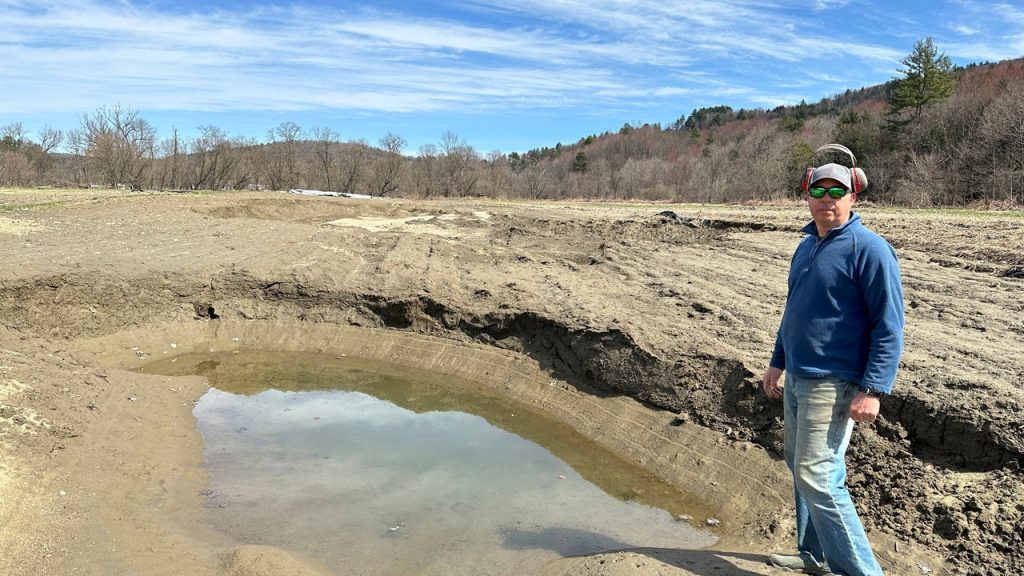Hundreds of Vermont farms are still recovering from the catastrophic flooding and extreme weather that occurred last July as they prepare for the upcoming growing season. Dog River Farm in Berlin, Vermont, lost nearly all its produce crops in the July flooding and experienced further damage in December, including the loss of garlic crops. Goat farmers Jeremy and Jennifer Leather also suffered losses with straw bales being washed away and the hay becoming contaminated with silt. A grassroots fundraising campaign called Dig Deep Vermont has provided grants to 32 farms to help cover some of these expenses.
Vermont officials are urging farmers to document and report flood-related crop damage as the state estimates around $45 million in losses statewide from the flooding, extreme weather, and persistent rains. The grants distributed by the campaign range from $200 to $1800 and are aimed at helping farms with immediate expenses such as fuel, seed, and supplies. While the grants will not fully cover the losses suffered by the farmers, they provide some hope and assistance in tackling bills and expenses. Agriculture Secretary Anson Tebbetts emphasized the urgency for feed and access to fields for spring planting, indicating the critical need for assistance.
Farms in Vermont have experienced staggering losses from severe weather events, with millions of dollars in damages due to crop loss, equipment damage, and debris in fields. Sand and silt in farm fields have prevented some farmers along Route 2 from harvesting corn, forcing them to dig up and remove the silt at their own expense before planting. The contamination in fields also requires farmers to test their soil to ensure it is safe for planting. Vermont Farm Bureau President Jackie Folsom highlighted the difficulties faced by farmers in removing silt from their fields and the financial burden it places on them.
The continuing challenges faced by Vermont farmers as they work to recover from last year’s extreme weather events have left many uncertain about the upcoming growing season. George Gross from Dog River Farm expressed his anxiety about the season, stating that his anxiety level will remain high until the harvest is completed in late November. Despite the uncertainties, farmers like Gross continue to work tirelessly to ensure a successful harvest, even though the road ahead is filled with challenges and potential setbacks. The support from programs like Dig Deep Vermont and private donations provides some relief and hope for farmers as they navigate the recovery process.
The losses suffered by Vermont farms have been significant, with many farmers dealing with damaged crops, contaminated soil, and costly clean-up efforts. The need for assistance and support from the community and government agencies is crucial in helping farms recover and rebuild after the devastating flooding and extreme weather events. While the grants provided by the fundraising campaign can help alleviate some of the financial burdens faced by farmers, the road to recovery remains long and challenging. Vermont officials are working to address the urgent needs of farmers and provide resources to help them overcome the challenges posed by the extreme weather events and support them as they prepare for the upcoming growing season.


